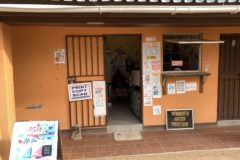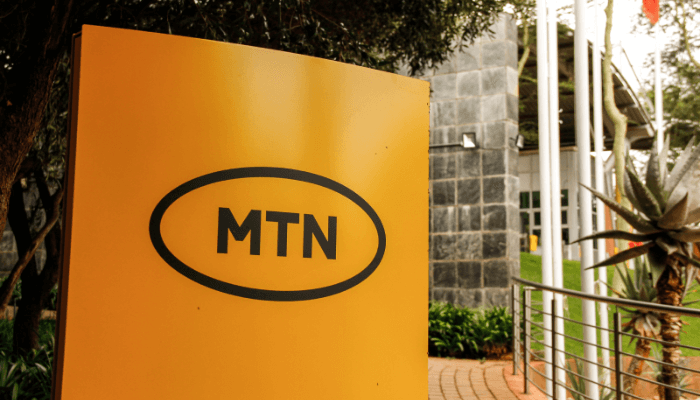Adbot is a South African adtech startup that uses artificial intelligence to enable small businesses to efficiently run their online advertising campaigns. The company recently announced a seed round with plans to expand into Nigeria.
According to data by McKingsey, in the last five years, the share of Africans who choose to buy goods and services online has more than doubled, translating to about 10% of the entire population on the continent. Additionally, online sales in Africa are growing at around 25%, year-on-year—one of the highest rates in the world—with more than 10 million people starting to buy online each year.
Adbot is a South African adtech startup looking to help small businesses piggyback on this trend. The startup offers AI-powered automated ad campaign management that enables SMEs to get their Google and Bing ads online within just 10 minutes, or so the company claims. To achieve this claim, Adbot recently raised an undisclosed seed round from Tofino Capital to scale its product to more markets including Nigeria.
TechCabal caught up with Adbot founder and CEO, Michelle Geere, to learn more about the role AI plays in online advertising, fundraising during a downturn, the state of online advertising in Africa, and much more.
TechCabal: Please tell us more about Adbot and the company’s product offering
Michelle Geere: We are an adtech company offering automated online ad campaign management for SMEs in Africa using artificial intelligence. The problem we are solving is that, at the moment in Africa, if you want to get your business online, number one, you need a credit card. You need a credit card to get your business onto Google or onto Facebook, or any one of those different platforms and we know that Africans don’t bank the same way as everybody else. Additionally, if you want to get your business online, you have to do your own campaign management which is a task and a half especially if you are not skilled at it.
So what often happens is, when it comes to online advertising, small businesses do want to take advantage of it, but they just don’t have the means. What ends up happening is they just don’t, and they find other ways of doing it, which are most of the time costly and generally inefficient compared to online advertising. To address that problem, we have built a piece of technology that can do all the management for the business owners. They don’t have to be an expert in digital marketing or Google Adwords. The technology automatically manages their campaigns for them so they can just focus on growing their businesses.
Adbot recently closed its seed round. What was your experience with trying to raise capital in a funding downturn?
MG: It is tough to get funding at the moment. I think what we had in our favour is that we started chatting to the Tofino Capital team and there was just a really good cultural fit. I have a personal passion for reducing the failure rates of SMEs in Africa and they are similarly interested in businesses in Africa who are contributing to the success of other businesses in Africa. So I think what really sealed that deal is the fact that we shared that same mission. It was a very quick decision with regard to getting it over the line.
What challenges did you face in your operations in South Africa and what challenges do you anticipate in the markets you will be expanding to?
MG: Firstly, I think the challenges in South Africa are slightly different to the challenges in Nigeria where we are planning to expand to. One of the reasons we raised was to expand into other parts of Africa because South Africa’s challenge is that people don’t understand automation yet. I think over time, the understanding of the fact that a machine can do it better than you will sink in but at the moment, that’s not the case. The launch of ChatGPT seems to be changing that mentality which is a welcome development.
In Nigeria, I think the challenge will be to introduce the concept of ads and online services because the country has a very specific way of doing e-commerce. For example, e-commerce via social platforms like Instagram is very common but the likes of Google Search, not very much so. The challenge will be educating the market that they can do what they’ve been doing on a bigger scale using our technology.
What advantage does Adbot have over business owners doing their own ad campaign management?
MG: If you were a small business owner, and you went directly to Google, and bought ads from Google, you would have to know exactly how the platform works. This has quite a steep learning curve and requires dedicated time for self-learning. Most business owners simply don’t have that liberty. The second part that you have to do if you bought ads directly from Google is that you have to log in on a daily basis into your account and put money behind keywords. To do this efficiently, you have to know which keywords are working and which ones are not working. This again requires a significant amount of time because if you don’t know what you are doing, you can lose a lot of money without really gaining anything.
With Adbot, you don’t have to do all those administrative tasks. You just fill in a one-page form which literally takes ten minutes or less, telling us where you would like to place your ads. The AI then steps in to handle everything else without overspending.
What would you say is the future of online advertising in Africa?
MG: I think the future of online advertising in Africa is definitely going to be more uptake of automation of campaigns, allowing business owners to focus more on the day-to-day operations of their enterprises. Additionally, I think for African businesses, the fact that internet penetration rates across the continent are steadily increasing is a great opportunity to leverage online advertising to drive growth and profitability.
Technologies like AI will also go a long way in enabling small businesses to use online advertising much more efficiently and effectively.
*This interview has been edited for clarity and brevity.
What do you think about our stories? Tell us how you feel by taking this quick 3-minute survey.





















